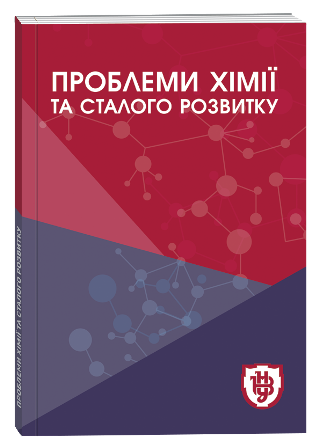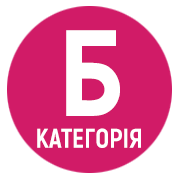ON THE PROBLEM OF IDENTIFYING THE PEDAGOGICAL CONDITIONS FOR TRAINING FUTURE VOCATIONAL TEACHERS IN HIGHER EDUCATION INSTITUTIONS IN THE CONDITIONS OF DIGITALIZATION
DOI:
https://doi.org/10.32782/pcsd-2025-1-12Keywords:
separation of pedagogical conditions, vocational education teachers, digital competence, innovative methods, higher education institutions, integrationAbstract
Purpose of the work. The steady trend of upgrading approaches in the field of educational management is currently being transformed into the concept of optimizing the quality of education. This trend is gaining particular importance against the background of the global digitalization of the educational environment, the need to ensure the proper level of competitiveness of educational institutions and improve the process of training future teachers of vocational education. New conditions dictate the need to properly ensure pedagogical conditions for the training of future specialists. The purpose of the article is to analyze the aspects of identifying pedagogical conditions for the training of future teachers of vocational education in higher education institutions. Methodology. In the process of working on the article, a number of general scientific research methods were applied, including analysis of literary sources, comparison, systematization and generalization. The study belongs to the category of descriptive and includes case studies and analysis of secondary data. Scientific novelty. The study found that for effective modeling of the educational process, it is necessary to provide for a stage of detailed planning of the process of integrating digital solutions and ensuring appropriate pedagogical conditions. The modern vision of the definition of «pedagogical conditions» is clarified. The concepts of cooperation, adaptability and personalization in the educational sphere are analyzed against the background of the intensive integration of digital technologies, which are characteristic of the European experience. The need for personalization of the educational process and ensuring the creation and development of an individual educational environment is substantiated. Conclusions. The results of the study of the problem of identifying pedagogical conditions for the training of future teachers demonstrate that the proper development of management processes in the educational sphere guarantees the quality of the acquired skills and abilities of participants in the educational process. It is proven that the effective use of the potential of innovative digital tools within modern learning strategies contributes to the optimization of cognitive activity, the advancement of critical thinking and the formation of sustainable professional competencies, which in synergy ensures the successful formation of teachers of vocational training in the process of obtaining higher education.
References
Хриков Є. Педагогічні умови в структурі наукового знання. Вісник Черкаського національного університету імені Богдана Хмельницького. Серія: «Педагогічні науки». 2022. № 4. С. 5–10.
Яремчук Н., Назар С. Педагогічні умови формування віртуального освітнього простору закладу вищої освіти. Молодь і ринок. 2021. № 7/193.
Литвин А. В. Методологічні засади поняття «педагогічні умови» : практ. посібник. 3-е вид., доп. Львів : ЛДУБЖД, 2022. 90 с.
Zhao Y., Llorente A. M. P., Gómez M. C. S. Digital competence in higher education research: A systematic literature review. Computers & Education, 2021. № 168. https://doi.org/10.1016/j.compedu.2021.104212
Voichenko D. V. Innovations in education management: transformation of the modern system. In Innovations and scientific potential of the world: materials of the III International Scientific Conference. International Center for Scientific Research. 2023. Рp. 211–213. UKRLOGOS Group LLC. http://surl.li/urfqh
Sinyaeva, O., Krekot M., Zavhorodniy O., Sychova T., Sychov A. Features of the use of information technologies in education. Education. Innovation. Practice. 2023. № 11(7). Рр. 98–104. https://doi.org/10.31110/2616-650X-vol11i7-013
Castro-Alonso J. C., de Koning B. B., Fiorella L., Paas F. Five strategies for optimizing instructional materials: Instructor-and learner-managed cognitive load. Educational Psychology Review. 2021. № 33(4). Рр. 1379–1407. https://doi.org/10.1007/s10648-021-09606-9
Gallagher S. E., Savage T. Challenge-based learning in higher education: an exploratory literature review. Teaching in Higher Education. 2023. № 28(6). Рр. 1135–1157. https://doi.org/10.1080/13562517.2020.1863354
Falcione S., Campbell E., McCollum B., Chamberlain J., Macias M., Morsch L., Pinder C. Emergence of Different Perspectives of Success in Collaborative Learning. The Canadian Journal for the Scholarship of Teaching and Learning. 2019. № 10(2). Рр. 1–23. https://doi.org/10.5206/cjsotl-rcacea.2019.2.8227
Eker B., Eker A. A. Quality criteria in universities. Journal of Innovations in Business and Industry. 2023. № 1(02). Рр. 65–70. https://doi.org/10.61552/JIBI.2023.02.002
Canaran Ö., Mirici İ. H. An Overview of the Recent Views and Practices in Teacher Professional Development. Eğitimde Kuram ve Uygulama. 2019. № 15(4). Рр. 350–362. https://doi.org/10.17244/eku.559281
Adiyono A., Hayat E. W., Oktavia E. D., Prasetiyo N. T. Learning interaction in the digital era: Technological innovations and education management strategies to enhance student engagement. Journal of Research in Instructional. 2023. № 4(1). Рр. 205–221. https://doi.org/10.30862/jri.v4i1.333
Вдовичин Т. Я. Обгрунтування організаційно-педагогічних умов для забезпечення навчального процесу майбутніх бакалаврів інформатики. Сучасні інформаційні технології та інноваційні методики навчання в підготовці фахівців: методологія, теорія, досвід, проблеми. 2013. № 34. С. 225–230.







